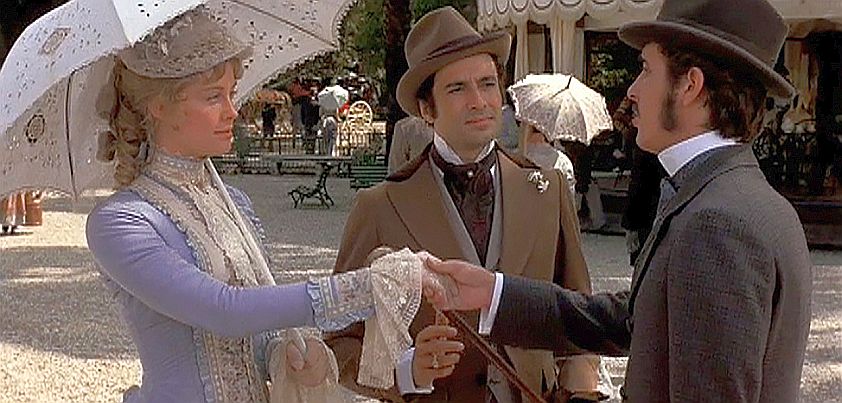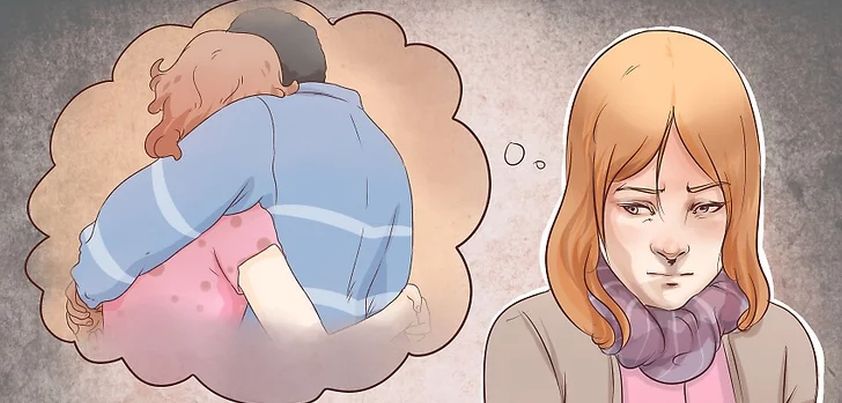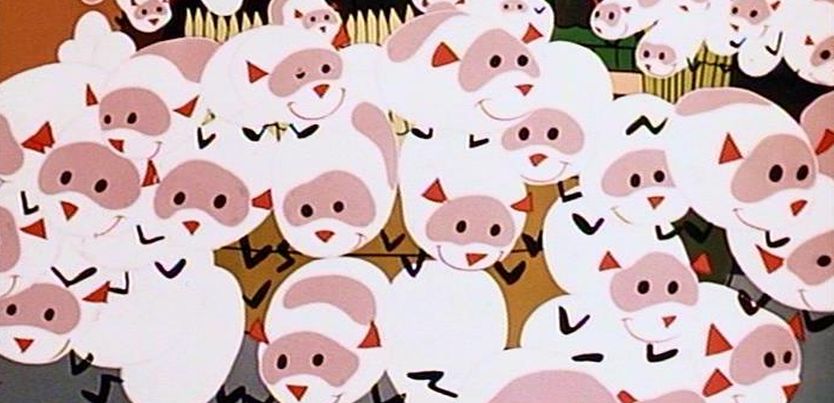 Henry James’s “Daisy” Miller is a young American socialite traveling through Southern Europe with her mother and younger brother. Flirtatious, independent and free-spirited, she enjoys the competing attentions of several men who she subtly manipulates to do her bidding. Her behaviour, especially going about with men unchaperoned, is scandalous by American expat community standards, resulting in gossip and her ostracization. A question in the mind of a man smitten by Daisy is whether she could possibly be as innocent as she appears. Themes include social conventions (Europe vs. America), gossip, reputation (innocence vs. immorality), double standards (male vs. female independence). More…
Henry James’s “Daisy” Miller is a young American socialite traveling through Southern Europe with her mother and younger brother. Flirtatious, independent and free-spirited, she enjoys the competing attentions of several men who she subtly manipulates to do her bidding. Her behaviour, especially going about with men unchaperoned, is scandalous by American expat community standards, resulting in gossip and her ostracization. A question in the mind of a man smitten by Daisy is whether she could possibly be as innocent as she appears. Themes include social conventions (Europe vs. America), gossip, reputation (innocence vs. immorality), double standards (male vs. female independence). More…
Theft
 The major theme of this story by Katherine Anne Porter is loss… a stolen purse, lost friendships and opportunities, loss in love, loss of youth, and loss of hope. The real “robber” in the story is the protagonist, a struggling, ‘not so young’ writer who prides herself on her trusting, easy-going, unmaterialistic nature. After receiving a letter ending a love affair and later having her purse stolen, she realizes that if she doesn’t take charge of her life and stop “letting things go”, she will end up with nothing. Other themes include apathy and self-delusion, alienation, love, rejection, guilt. More…
The major theme of this story by Katherine Anne Porter is loss… a stolen purse, lost friendships and opportunities, loss in love, loss of youth, and loss of hope. The real “robber” in the story is the protagonist, a struggling, ‘not so young’ writer who prides herself on her trusting, easy-going, unmaterialistic nature. After receiving a letter ending a love affair and later having her purse stolen, she realizes that if she doesn’t take charge of her life and stop “letting things go”, she will end up with nothing. Other themes include apathy and self-delusion, alienation, love, rejection, guilt. More…
Hamadi
 In this story by Naomi Shihab Nye, a bookish fourteen-year-old Palestinian-American girl develops a strong connection with Saleh Hamadi, an ageing Lebanese immigrant. Both share an interest in Kahlil Gibran, and in particular his book The Prophet. The girl is pleasantly surprised when the eccentric Hamadi, who lives a spartan, solitary life, accepts an invitation to join her Christmas caroling group. During the evening, she overhears some life advice she will remember for years as Hamadi comforts a friend who is in tears over being snubbed by a boy. Themes include connection, compassion, perseverance, resilience (life goes on), wisdom. More…
In this story by Naomi Shihab Nye, a bookish fourteen-year-old Palestinian-American girl develops a strong connection with Saleh Hamadi, an ageing Lebanese immigrant. Both share an interest in Kahlil Gibran, and in particular his book The Prophet. The girl is pleasantly surprised when the eccentric Hamadi, who lives a spartan, solitary life, accepts an invitation to join her Christmas caroling group. During the evening, she overhears some life advice she will remember for years as Hamadi comforts a friend who is in tears over being snubbed by a boy. Themes include connection, compassion, perseverance, resilience (life goes on), wisdom. More…
Pigs is Pigs
 This humorous story by Ellis Parker Butler illustrates how excessive bureaucracy can have dire consequences. A customer argues with a railway freight agent who claims that two guinea pigs he has been sent should be charged as common pigs (sixty cents) rather than pets (fifty cents). The customer leaves the pigs with the agent, planning to collect them after complaining to the freight company’s Head Office. By the time the matter is settled in the customer’s favour, the ten-cent dispute has almost brought the company to its knees. Themes include misinterpretation, stubbornness, bureaucracy gone awry. More…
This humorous story by Ellis Parker Butler illustrates how excessive bureaucracy can have dire consequences. A customer argues with a railway freight agent who claims that two guinea pigs he has been sent should be charged as common pigs (sixty cents) rather than pets (fifty cents). The customer leaves the pigs with the agent, planning to collect them after complaining to the freight company’s Head Office. By the time the matter is settled in the customer’s favour, the ten-cent dispute has almost brought the company to its knees. Themes include misinterpretation, stubbornness, bureaucracy gone awry. More…
Gren’s Ghost
 In this story by Marie-Louise Fitzpatrick, a usually timid 6th grader who is ridiculed at school because of his unusual name has an experience that boosts his pride and self-confidence. At midnight, he sneaks out of his house to help a classmate with a task he says needs two to pull off. Despite concerns about being set up for some kind of hazing, the boy goes to the meeting-place at the Seven Castles ruins and learns that their objective is to capture a photograph of the famous Priory Ghost. Themes include identity, fear, courage, pride, self-confidence, “friendship”, manipulation. More…
In this story by Marie-Louise Fitzpatrick, a usually timid 6th grader who is ridiculed at school because of his unusual name has an experience that boosts his pride and self-confidence. At midnight, he sneaks out of his house to help a classmate with a task he says needs two to pull off. Despite concerns about being set up for some kind of hazing, the boy goes to the meeting-place at the Seven Castles ruins and learns that their objective is to capture a photograph of the famous Priory Ghost. Themes include identity, fear, courage, pride, self-confidence, “friendship”, manipulation. More…